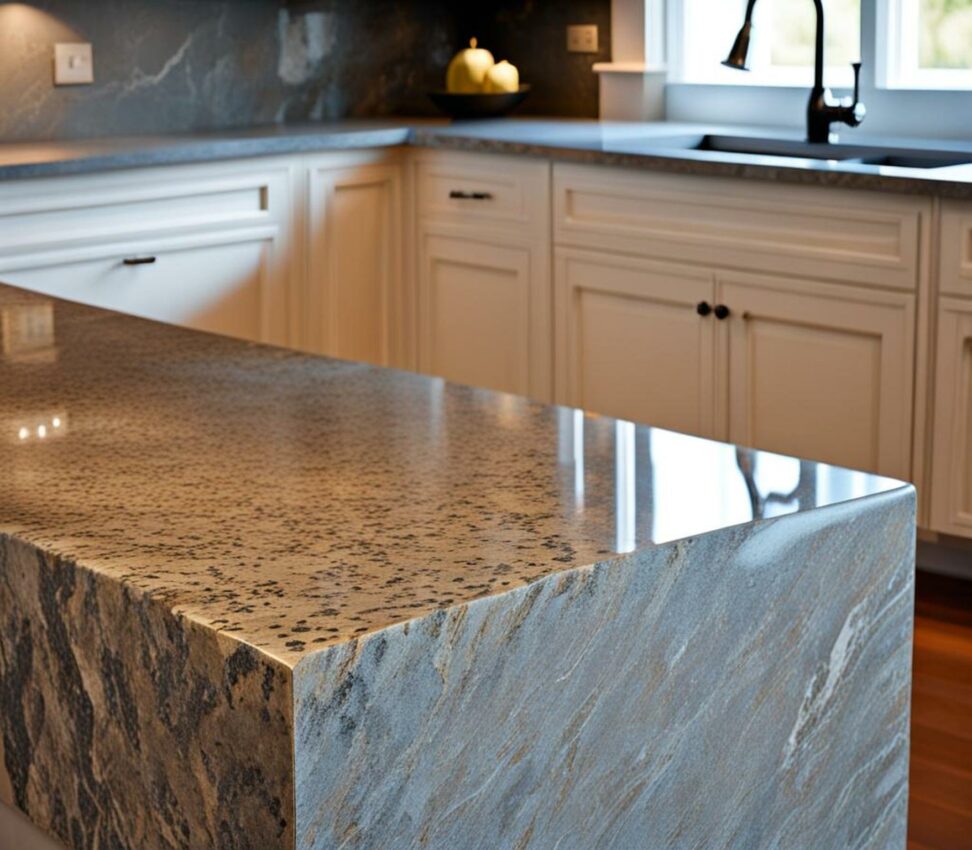Adding Value and Durability with the Ideal Countertop
When renovating a kitchen, choosing the right countertop material is one of the most important decisions. As a focal point in any kitchen design, countertops need to be durable, easy to maintain, and match your aesthetic vision. With popular options like granite, marble, quartz, and tile, how do you know which material is best for your needs? We break down the pros and cons of today's top countertop materials to help you find value, beauty, and lasting durability.
Key Factors in Selecting Countertops
With the wide variety of countertop materials available, it helps to focus on a few key factors as you evaluate options:
- Durability - Ability to resist scratches, stains, heat, and impacts over years of use
- Maintenance - Regular sealing, polishing, or oiling required
- Cost - Material and installation expenses
- Aesthetics - Colors, patterns, and visual appeal
Your lifestyle and priorities will determine the best material for your home. Active cooks may prioritize scratch resistance, while busy families may want a low maintenance option. Design lovers can choose a stylish statement piece. Balancing these desires will lead you to the perfect countertop.
Granite Countertops
Often seen as a luxury material, granite is one of the most popular options due to its rugged durability and timeless beauty. Made from natural stone, granite adds value and an elegant, high-end look.

Pros of Granite Countertops
There are many benefits offered by granite countertops:
- Extremely durable - lasts for decades
- Resistant to heat, stains, and water damage from sinks or spills
- Low maintenance - only needs occasional sealing
- Wide variety of colors and patterns
- Prestigious, classic look that increases resale value
Cons of Granite Countertops
Potential downsides of granite include:
- Expensive upfront cost, especially for large kitchens
- Very heavy and may require added structural support
- Can chip if heavy pots or pans are dropped
- Surface can crack if not installed properly
With proper installation and care, granite countertops offer timeless beauty and durability for decades in any kitchen.
Marble Countertops
Known for its elegance, marble has long been prized as a countertop material. Softer and cooler than granite, marble brings classic beauty to kitchens.
Pros of Marble Countertops
Benefits of marble countertops include:
- Visually appealing classic style
- Resists heat damage from hot pots and pans
- Ideal surface for rolling dough or pie crusts
- Available in range of colors like white, gray, black
- Softer than granite for easier cutting and prepping
Cons of Marble Countertops
Potential limitations of marble countertops:
- Etches easily from acidic liquids like wine, coffee, and juice
- Prone to scratching and chipping from knives or heavy objects
- Stains easily from spills and requires yearly sealing
- Heavy weight requires strong cabinet support
For cooks willing to seal and care for marble properly, it offers an elegant and artistic countertop.
Engineered Quartz Countertops
One of the most popular new countertop materials is engineered quartz. Combining ground quartz with resins and polymers creates an incredibly durable surface.
Pros of Engineered Quartz
Engineered quartz offers many benefits:
- Mimics natural stone while minimizing flaws
- Extremely durable and resistant to scratches
- Easy maintenance with no sealing required
- Resists stains from spills, foods, and liquids
- Seamless appearance for a smooth look
- Wide variety of colors and patterns
Cons of Engineered Quartz
Potential downsides of engineered quartz:
- Higher cost than laminates
- Some visible seams on island cuts or specialty edges
- May dull knives faster than wood or softer stones
With higher durability than granite and more styles than laminate, engineered quartz offers the best of both worlds.
Ceramic and Porcelain Tile Countertops
Ceramic and porcelain tile make an extremely durable and customizable countertop option. Available in endless colors, styles, and patterns, tile enables you to add personal flair.
Pros of Tile Countertops
Benefits of tile countertops include:
- Highly durable and resistant to scratches
- Stain, heat, and water resistant
- Easy to clean with damp cloth
- Very affordable compared to stone
- Create custom styles and patterns
Cons of Tile Countertops
Potential tile countertop considerations:
- Grout requires sealing to prevent staining
- Seams more visible unless meticulous installation
- Tiles can crack or chip if heavy objects dropped
Offering durability and endless customization at a reasonable price, tile creates a practical yet personalized countertop.
Solid Surface Countertops
Popular solid surface options like Corian offer an affordable alternative to natural stone. Made from resin or quartz dust and polymers, solid surface resists heat and stains.
Pros of Solid Surface Countertops
Benefits of solid surface countertops include:
- Custom one-piece installation with seamless look
- Easy to clean and sanitize
- Scratches can be buffed away
- Cost effective versus stone materials
- Wide range of colors from conservative to bold
Cons of Solid Surface Countertops
Considerations for solid surface countertops:
- Prone to scratches and cuts from knives
- Can scorch or burn if hot pans placed directly on surface
- Not as durable overall as stone or quartz
Offering a streamlined appearance at a reasonable price, solid surface counters are an affordable option to achieve the seamless look.
With the wide range of countertop materials available, selecting the ideal surface comes down to your priorities. Consider how each material aligns with your lifestyle, design tastes, and budget.
For durability, granite and engineered quartz are top choices that withstand years of wear. Marble and wood offer natural beauty, but require more maintenance. Budget-friendly picks like tile and solid surface provide value. The perfect countertop balances your needs with timeless appeal.
By understanding the pros and cons of each material, you can make an informed decision. Focus on options that offer lasting durability to stand the test of time. With the right countertop, you can add lasting value and elegance to any kitchen design.